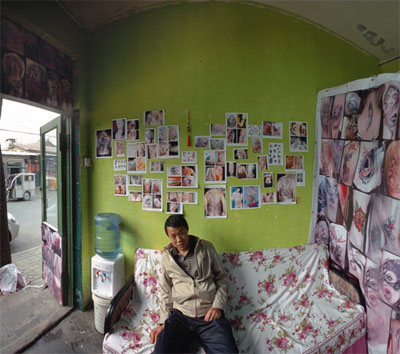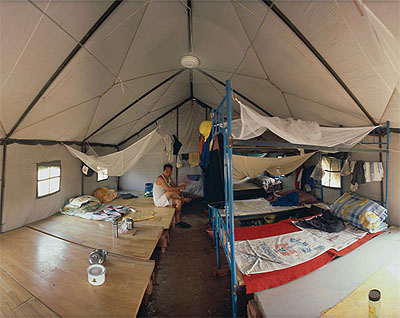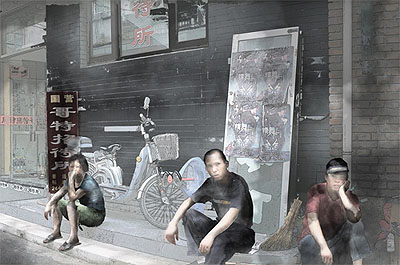
C-Print, 42 x 160 cm, Ed. 2, 25 x 95 cm, Ed. 4
Zoom
MIAO Xiaochun »
Index
Exhibition: 7 Sep – 7 Nov 2009
White Space Beijing
No.255 Caochangdi, Airport Service Road
100015 Beijing
ALEXANDER OCHS GALLERIES BERLIN | BEIJING
246 Caochangdi, Airport Service Road
100015 Beijing
+86-139 1066 3801
susansi@alexanderochs-galleries.net
www.alexanderochs-galleries.com

MIAO XIAOCHUN, J15 2007/5/13, 2009
C-Print, 42 x 160 cm, Ed. 2, 25 x 95 cm, Ed. 4
Zoom
MIAO XIAOCHUN | INDEX Miao Xiaochun (1964), famous for his large scale colourful photographs with the help of digital technology 'Last Judgement in Cyberspace', 'H2O' and 'Microcosm' in his latest project refers to documentary photography. Artist Statement: 'We all give priority to the 'objectivity' of photographs; however, everyone makes a subjective choice prior to shooting. We choose the theme, the location, the time of shooting, the aperture and the shutter speed; we decide on the people and objects entering the frame. If we really don't know what to shoot, we can shoot first and select later or we can ask someone else to choose for us. After selecting a few, we can pigeonhole the others and wait for later generations to choose again. Think about how we handle pictures left by earlier generations, some have artistic others have documentary value and it is wrong to destroy any of them (although the remains are never enough to restore the long gone past.) Thus, the question is still how we make decisions when shooting, but maybe we do not need to choose at all. There are reasons for choosing a subject or against it: subjective, objective, expressive and documentary ones. Therefore, I use a Seitz Roundshot-Camera for the Beijing Index. This way, I don't have to choose the shooting angle, since it is a 360 degree anyway, with all angles included. I took a map of Beijing and draw longitudes and latitudes of equal distance. The crossing points of those lines define the shooting locations. It does not matter if those locations are important and interesting or not. I set up the camera and took a photograph in order to shoot something that's not planned. I just wanted to shoot more and more. When we talk about objective records, how do we define objective? And when are they complete? Maybe 'more' is never enough, but the more the better.'

MIAO XIAOCHUN, D18 07/06/10, 2009
C-Print, 42 x 160 cm, Ed. 2, 25 x 95 cm, Ed. 4
Zoom

MIAO XIAOCHUN, 08/07/31B, 2009
Digital Ink Painting,
Zoom